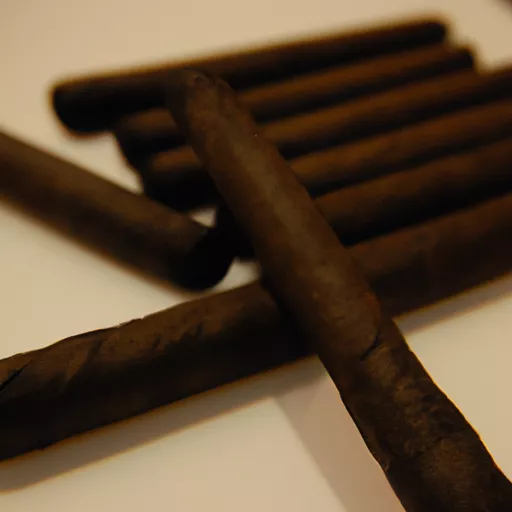
As a lover of cigars, I have always been intrigued by the smaller alternative known as little cigars. These compact and flavorful smokes pack just as much punch as their larger counterparts, making them a popular choice among connoisseurs and casual smokers alike. In this article, I will dive into the world of little cigars, exploring their history, flavors, and appeal.
To begin, let’s clarify what exactly a little cigar is. Some may confuse them with cigarillos or cigarettes, but they are a distinct form of tobacco product. Little cigars are essentially cigars that have been made shorter in length, usually about the size of a cigarette. They are also thinner than traditional cigars, with a diameter of around 6mm. While they may have a similar appearance to cigarettes, they are made with the same premium tobacco as cigars, giving them a richer and more complex flavor profile.
The origins of little cigars can be traced back to the late 1800s, when they were initially marketed as a cheaper alternative to traditional cigars. These small cigars were made with the leftover tobacco scraps from premium cigar production, which made them more affordable. They quickly became popular among working-class individuals who wanted to enjoy a cigar without breaking the bank.
In the 1960s and 1970s, little cigars began to gain traction as a trendy alternative to cigarettes. Their smaller size and lighter flavor made them more appealing to younger smokers. However, they faced stiff competition from the ever-popular cigarette market, and little cigars remained mostly under the radar until the early 2000s.
In recent years, little cigars have experienced a surge in popularity, especially among young adults and women. This can be attributed to their particular flavor profiles, social media presence, and attractive packaging. With flavors ranging from classic tobacco to fruit and dessert-inspired options, little cigars offer a level of variety that appeals to a more diverse audience.
Now, let’s talk about the different types of little cigars available on the market. There are two main categories: natural or traditional and flavored little cigars. Natural little cigars are made with 100% tobacco and do not contain any added flavors or sweeteners. On the other hand, flavored little cigars are infused with various flavors, such as vanilla, cherry, or chocolate. These flavored little cigars often have a sweetened tip, providing a unique smoking experience.
One of the most prominent advantages of little cigars is their convenience. Their compact size makes them easy to carry around, and they require less time to smoke than a traditional cigar. This makes them an excellent choice for busy individuals who still want to enjoy a premium smoke. They also burn slower than cigarettes, offering a longer smoking experience.
Another advantage of little cigars is their affordability. While premium cigars can be quite expensive, little cigars are more budget-friendly. They also come in various pack sizes, allowing you to purchase smaller quantities without committing to a whole box.
When it comes to the flavor, little cigars offer a wide range of options to suit different tastes. If you prefer a milder smoke, you can opt for a natural little cigar with a Connecticut wrapper, which provides a smooth and balanced flavor. For a more robust smoke, a little cigar with a Maduro wrapper will provide a fuller taste with notes of chocolate and coffee.
Now, you may be wondering about the difference between little cigars and cigarettes. While both are made from tobacco, there are significant differences between the two. Little cigars are made with premium tobacco, while cigarettes contain a blend of lower-grade tobacco and additives. This results in a more refined and nuanced flavor for little cigars compared to cigarettes. Additionally, little cigars are hand-rolled, whereas cigarettes are mass-produced using machines.
In terms of health, little cigars are often perceived as a better option than cigarettes. However, it is crucial to note that any form of tobacco product carries health risks and should be consumed in moderation. Little cigars, like all forms of tobacco, contain nicotine, which is highly addictive. Therefore, it is essential to use them responsibly and be mindful of the potential health implications.
In conclusion, little cigars offer a unique smoking experience that can appeal to a wide range of individuals. Their compact size, convenient packaging, and diverse flavor options make them a popular choice among cigar lovers and casual smokers alike. They may be small, but they pack a big punch of flavor, making them a must-try for any tobacco enthusiast.